Search
Summary
Loading AI-generated summary based on World History Encyclopedia articles ...
Answers are generated by Perplexity AI drawing on articles from World History Encyclopedia. Please remember that artificial intelligence can make mistakes. For more detailed information, please read the source articles
Search Results

Article
Social Change in the British Industrial Revolution
The British Industrial Revolution (1760-1840) witnessed a great number of technical innovations, such as steam-powered machines, which resulted in new working practices, which in turn brought many social changes. More women and children worked...
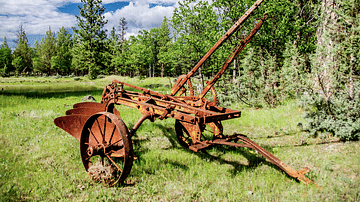
Article
Agriculture in the British Industrial Revolution
Agriculture, like most other areas of working life, was greatly affected by the machines invented during the Industrial Revolution. Agriculture in Britain and elsewhere had made leaps forward in the 18th century, and its success released...
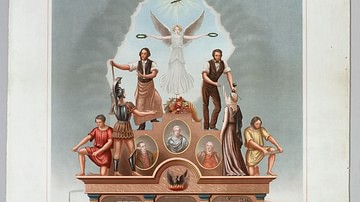
Article
Trade Unions in the British Industrial Revolution
Trade unions were formed in Britain during the Industrial Revolution (1760-1840) to protect workers from unnecessary risks using dangerous machines, unhealthy working conditions, and excessive hours of work. The trade union movement was vigorously...

Article
Coal Mining in the British Industrial Revolution
Coal mining boomed during the British Industrial Revolution as it provided fuel for steam engines of all kinds in factories, transport, and agriculture. Draining flooded mines to extract more coal was the reason the steam engine was invented...
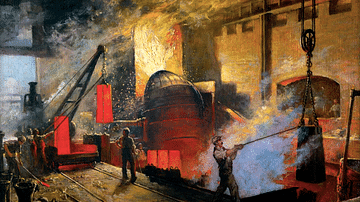
Article
The Steel Industry in the British Industrial Revolution
The production of steel during the British Industrial Revolution became cheaper and more reliable thanks to the Bessemer converter, a type of blast furnace that removed undesirable impurities from pig iron. The superior strength and durability...
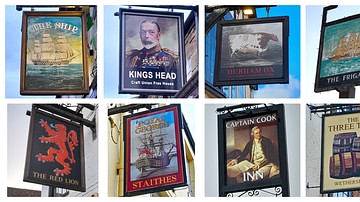
Article
The Origins of British Pub Names
Pubs remain a prominent feature of the rural and urban landscapes of Britain, but their names very often date back to medieval times. Red lions, white horses, and colourful characters peer from pub signs as landlords choose names to represent...
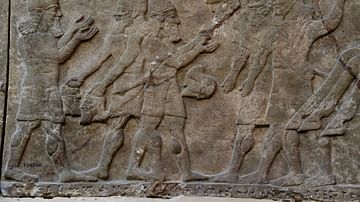
Article
Wall Reliefs: Ashurnasirpal II's War Scenes at the British Museum
The Mighty King 600 of their warriors I put to the sword and decapitated; 400 I took alive; 3,000 captives I brought forth; I took possession of the city for myself: the living soldiers, and heads to the city of Amidi the royal city...

Article
African Slave Life in Colonial British America
African slave life in Colonial British America was far worse than slavery practiced in the Americas prior to the arrival of Europeans. The indigenous tribes took people as slaves in raids, enslaved those convicted of crimes, and traded slaves...
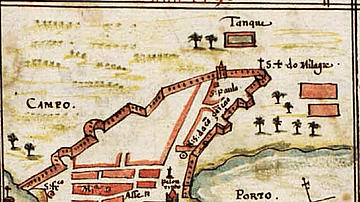
Image
Port of Kollam, India
An early 17th-century illustration of Kollam (Quilon) in southern India which became a colony of the Portuguese empire in 1505. Part of the Portuguese Estado da India, a fort was built at Kollam in 1515.
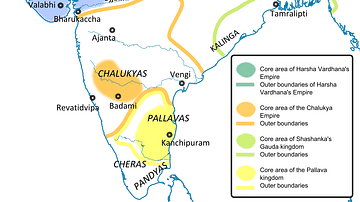
Image
Ancient India in 625 CE
This is a political map of India showing the important kingdoms that existed around 625 CE. The predominant powers are the Pushyabhutis under Emperor Harshavardhana or Harsha (606-647 CE) in northern India, the (Vatapi) Chalukyas under Emperor...